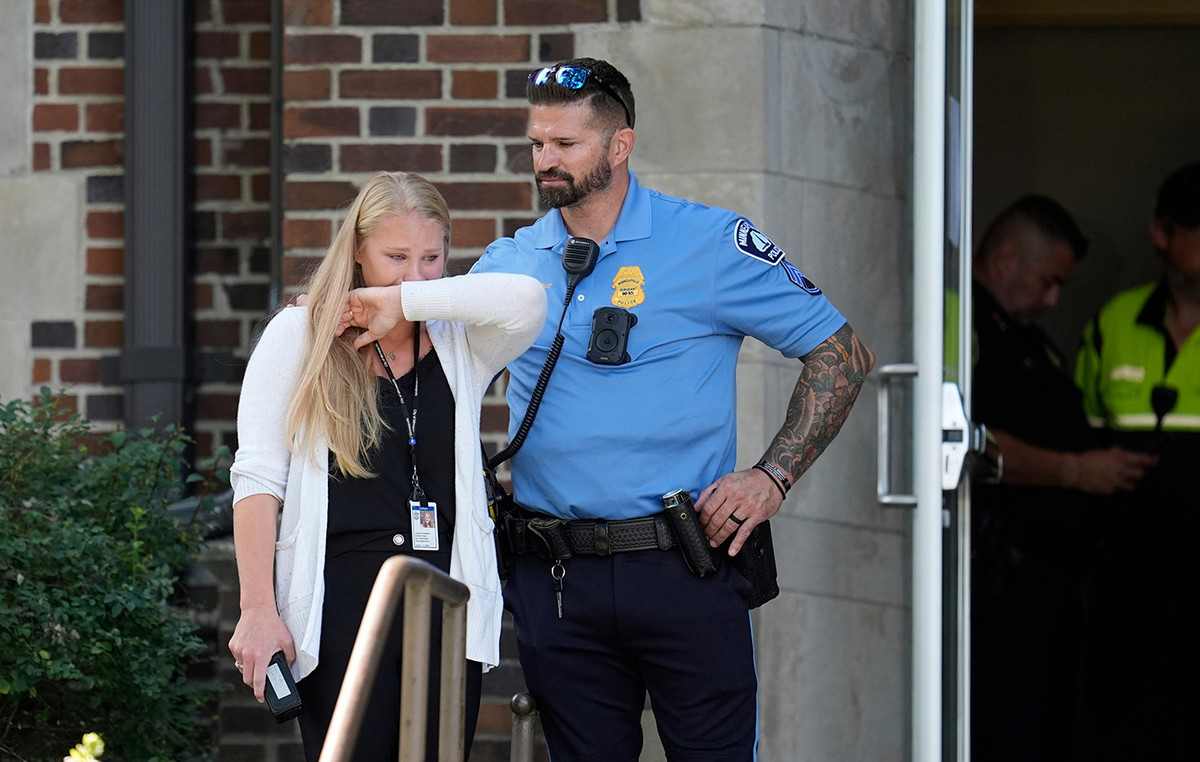With the start of the United States election campaigns, pressure from American politicians and citizens became evident for the president Joe Biden prove your strength and cognitive ability to lead a possible second term.
The situation, which, a priori, can be considered merely political, also brings to light a subject of human interest: the natural aging and its impact on cognition . As we age, the brain undergoes structural and functional changes that can affect cognitive activity.
“These changes can lead to reduced cognitive performance in some domains, such as information processing speed and memory problems,” says Carolina Rebellato, a gerontology specialist from the Brazilian Society of Geriatrics and Gerontology (SBGG) and professor in the Department of Occupational Therapy at the Federal University of Rio de Janeiro (UFRJ), CNN .
Some common examples of this impact are the difficulty in remembering names, phone numbers and stored objects. However, this cognitive decline that is natural to aging may not have an impact on daily functions, as explained by Diego Haddad, a neurologist at Hospital Alemão Oswaldo Cruz.
“Yes, there is a cognitive decline that is normal and usual. [no envelhecimento] and the big point is that this natural cognitive decline does not impact a person’s functionality”, says the specialist to CNN . However, he emphasizes that when daily activities and other functions begin to be affected by cognitive decline, it may be a sign of a more serious health problem, such as dementia.
Why is cognitive function impacted in aging?
According to Rebellato, internal and external factors are involved in the impact of aging on brain functions. “There are biological aspects such as loss of neurons, reduction of synaptic density [comunicação entre neurônios] and the production of neurotransmitters, accumulation of certain proteins in the brain, reduction in the synthesis and absorption of vitamins, and hormonal changes that can lead to changes in cognitive performance in general”, explains the geriatrician.
Furthermore, the neurobiological aging process of the brain may be accompanied by other loss of bodily functions, such as loss of sensory function and auditory and visual processing. “This can affect cognitive processes and make it difficult to learn and process information, and respond appropriately to what is needed,” he adds.
On the other hand, there are external factors that can affect cognition and accumulate over the course of a lifetime. This is the case with insufficient sleep, inadequate nutrition and stress, according to Haddad.
“The lack of cognitive stimuli can also have an impact on cognition,” says the neurologist. These stimuli include activities that require attention and reasoning, such as games, learning a new language, performing mathematical calculations, doing manual work, writing, and even meditation.
Other factors that can accelerate the decline in cognition in aging are:
- Hypertension;
- Alcohol abuse;
- Obesity;
- Smoking;
- Depression and anxiety;
- Diabetes;
- Sedentary lifestyle;
- Social isolation;
- Traumatic brain injury;
- Air pollution;
- Low education level.
When might cognitive decline indicate dementia?
The impact of aging on cognition is natural and, in some cases, does not pose a health risk. However, when this decline begins to affect daily activities or leads to changes in behavior and personality may suggest dementia and should be investigated by a specialist doctor.
“The key is to be able to analyze your own symptoms and have a doctor assess whether it is actually normal or the beginning of mild cognitive impairment or dementia,” advises Haddad. In general, there are three types of cognitive decline, which vary in intensity and severity. They are:
- Subjective cognitive decline : characterized by self-perception of cognitive decline, in which the person complains about cognition, generally related to memory. However, it is not identified in cognitive tests and there is no functional impairment in the performance of daily activities;
- Mild neurocognitive disorder : can be identified in cognitive tests, with memory and/or language impairment, but without harm to autonomy and daily activities. However, the person may have difficulty performing complex activities and is a major risk factor for the development of dementia;
- Major neurocognitive disorder : characterizes a dementia syndrome and leads to functional impairment, affecting the performance of daily activities. The person begins to need support from others for their autonomy.
“A person with mild neurocognitive disorder may have difficulty memorizing places, people’s names and communicating, in addition to placing themselves in a situation of greater social isolation, in addition to performing simpler and more passive activities, such as watching television or listening to music,” explains Rebellato.
As cognitive decline progresses and becomes dementia, the person may have motor problems, with reduced joint lubrication, and impairment of other physiological functions. “They may forget to go to the bathroom, to defecate or urinate and, consequently, develop problems associated with genitourinary functions. In addition, they may have difficulty swallowing. [engolir alimentos ou líquidos]”, adds the geriatrician.
Common signs and symptoms of cognitive decline
The signs and symptoms of cognitive decline can vary depending on the cause. For example, Alzheimer’s disease accounts for about 60% to 80% of dementia cases. However, other disorders can cause the condition, such as vascular dementia, dementia with Lewy bodies, frontotemporal dementia, dementia related to the human immunodeficiency virus (HIV), and Parkinson’s disease.
Some conditions can also lead to dementia in a reversible manner (i.e., treatable once the disease has resolved or is maintained), such as hypothyroidism, vitamin B12 deficiency, brain tumors, Lyme disease, autoimmune diseases, and multiple sclerosis. In these cases, symptoms can also appear in younger people.
In general, the most common signs and symptoms of cognitive decline are:
- Memory loss;
- Changes in personality;
- Disorientation;
- Difficulty performing usual daily tasks;
- Language problems;
- Motor difficulties;
- Difficulty learning and remembering new information;
- Difficulty recognizing people and objects.
Diagnosis is made through medical evaluation, cognitive and neurological tests, as well as blood and imaging tests to rule out other causes of the symptoms.
How to prevent and minimize the impact of aging on the brain? See tips
Some practical measures can help minimize the impact of aging on cognition. Experts consulted by CNN guide to:
- Carry out activities that stimulate cognition: such as learning a new language or taking a course, as well as reading books;
- Carry out leisure activities;
- Maintain close social and family relationships;
- Maintain a healthy diet, rich in antioxidant and anti-inflammatory foods and low in ultra-processed foods;
- Monitor other health conditions, such as high blood pressure, high cholesterol, and diabetes;
- Avoid alcohol consumption and smoking;
- Practice physical activities regularly;
- Sleep well, seven to eight hours a day.
Source: CNN Brasil
I am an experienced journalist and writer with a career in the news industry. My focus is on covering Top News stories for World Stock Market, where I provide comprehensive analysis and commentary on markets around the world. I have expertise in writing both long-form articles and shorter pieces that deliver timely, relevant updates to readers.







